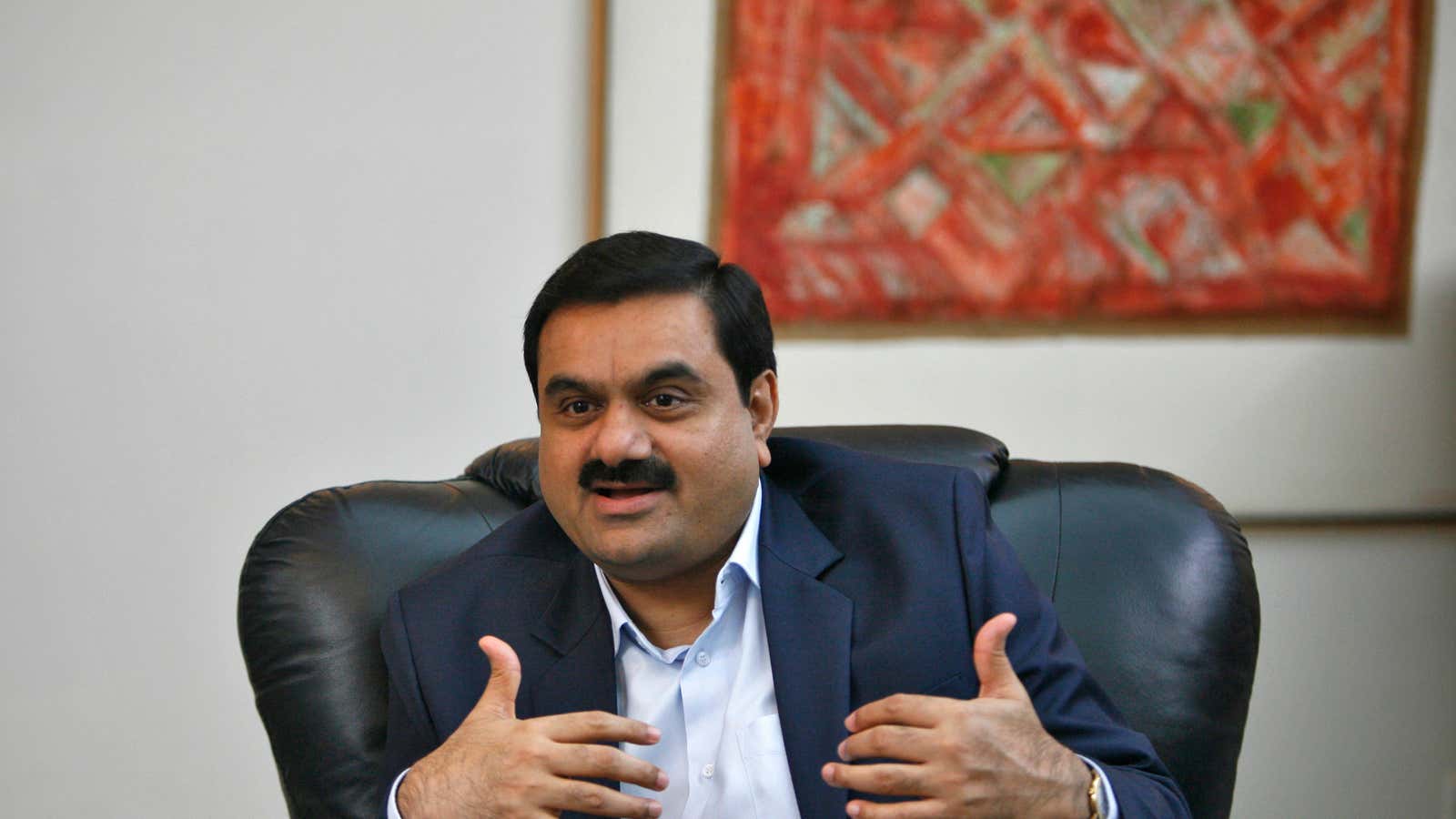The troubles of India’s Adani group, battling allegations of fraud made by US-based Hindenburg Research, seem to have increased.
Late yesterday (Feb. 1) night, the group’s flagship entity shocked investors by calling off its $2.5 billion (Rs 20,000 crore) fully subscribed follow-on public offer (FPO) that had opened on Jan. 27. In a regulatory filing (pdf), Adani Enterprises said it will refund the FPO’s proceeds.
An FPO is a process in which a listed entity issues new shares to both existing shareholders and new investors.
Today, the group’s chairman Gautam Adani released a video statement assuring investors that, despite this withdrawal, the company’s balance sheet remained “healthy and robust.” Its move was aimed to “protect investors from potential losses,” said the 60-year-old billionaire.
“This decision will not have any impact on our existing operations as well as our future plans,” he said Adani in the video message.
The FPO’s cancellation was unexpected despite a massive market rout in Adani stocks since the Jan. 24 release of Hindenburg’s report, accusing the group of pulling off “the largest con in corporate history.”
The week-long rout in the conglomerate’s shares has eroded up to $100 billion in the Adani group’s market value so far. Gautam Adani’s net worth itself has dipped by $23.4 billion to $65.3 billion, according to Forbes.
What really happened with the Adani Enterprises FPO?
Adani Enterprises’ limited FPO, which somehow made through the market volatility sparked by Hindenburg’s report, was fully subscribed, with non-institutional investors, including high net-worth individuals and family offices of industrialist bigwigs, buying into it.
The FPO received 58 million bids against the 45.5 million shares on offer. But this didn’t soothe the markets’ nerves.
A report by Forbes yesterday then alleged that the Adani group itself may have taken part in the FPO through shell companies.
“Two companies accused by Hindenburg Research of assisting the Adani Group in its alleged conspiracy of accounting fraud and stock market manipulation were underwriters in Adani Enterprises’ $2.5 billion share offering Monday,” the report said.
This intensified investors’ anxiety, causing a free fall in the group stocks today. Before the session ended today, Adani Enterprises’s stock saw a fall up to 26%.
Speaking on the same lines, US-based billionaire investor Bill Ackman yesterday shared his own skepticism on Twitter. He said he wouldn’t find it “surprising if the Adani group offering was rigged with affiliated buyers in addition to some real institutional participants like Abu Dhabi’s International Holding Company.”
“This would explain the low retail participation and today’s price decline,” Ackman said.
It must be noted that despite the FPO being oversubscribed, its retail portion was subscribed only 0.12 times (12%) with investors bidding for only 2.74 million shares as against the quota of 22.9 million shares.
...but it is just not about the FPO
The FPO isn’t the only dent in the Adani group’s credibility armor.
Bloomberg reported yesterday that Swiss lender Credit Suisse Group AG had stopped “accepting bonds of Adani Group companies as collateral for margin loans to its private banking clients.”
Citigroup’s wealth arm, too, has stopped extending margin loans to its clients against securities of India’s embattled Adani group, according to a Reuters report published today. It’s also being reported that India’s markets regulator the Securities and Exchange Board of India may initiate a probe against the Adani group.
Irreversible damage?
Experts believe the chill will persist for Adani as regaining investors’ trust will be an uphill task.
“...It will be interesting to see what the Adani group does to regain its market position as the final outcome of the ongoing situation is uncertain,” Sonam Chadwani, managing partner at Mumbai-based law firm KS Legal & Associates, told Quartz.”
Both parties [Adani group and Hindenburg Research] are open to a legal battle and the conflict will have significant implications for Adani as it is closely watched by stakeholders, investors, and the general public,” said Chadwani.
Others, too, are convinced that despite the billionaire’s assurance, things look tough for Adani. Stock analysis platform Trendlyne, for instance, has said that Adani Enterprises may not generate positive free cash for a long time.
“Adani Enterprises has an ambitious plan to set up a green hydrogen project of three million metric tonnes, data centers of 1GW, and a broad portfolio of 12,000 lane km in the next 10 years. It’s indeed dreaming big as it lacks the operational wherewithal to do so,” said a note by Trendlyne.
